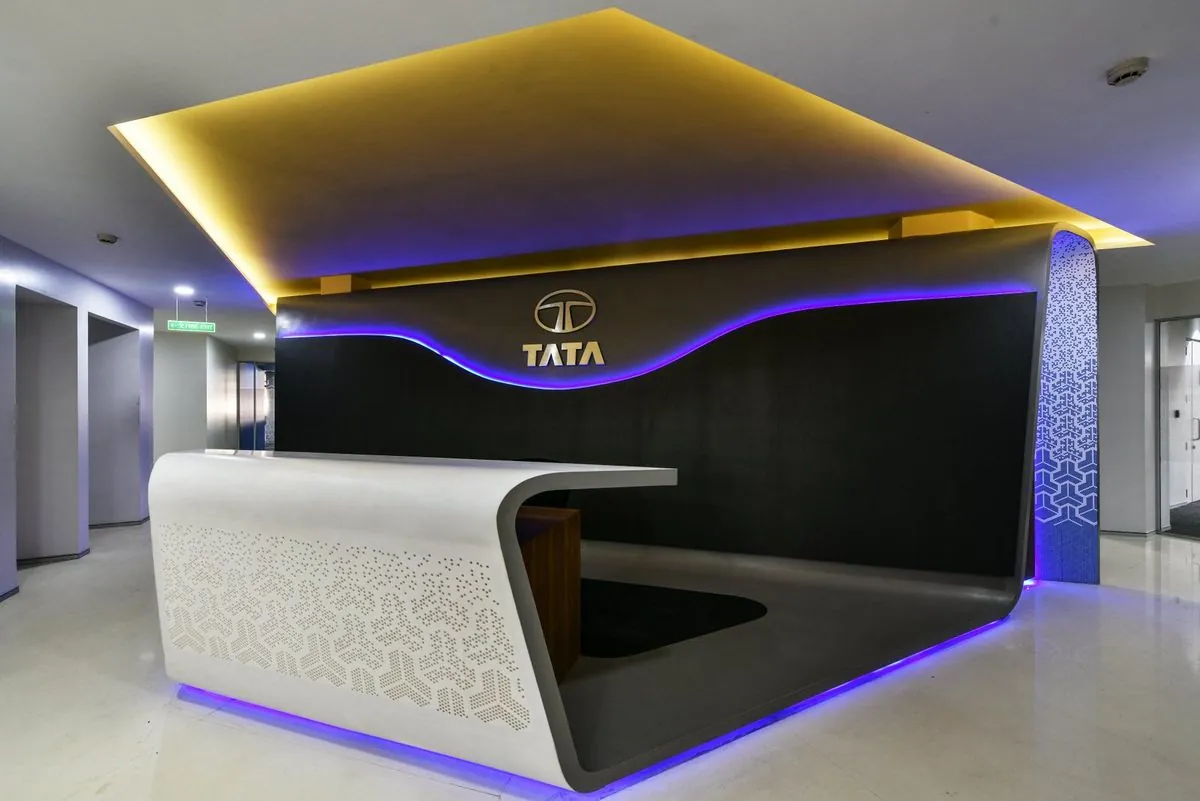Tata Motors Shares Plummet Amid JLR Financial Concerns
Tata Motors stock falls 5.6% following UBS warning about Jaguar Land Rover's financial outlook. Increasing discounts and slowing growth raise concerns for India's largest carmaker by revenue.

Tata Motors, India's largest automaker by revenue, experienced a significant stock decline on September 13, 2024. The company's shares fell 5.6%, marking their third-worst performance this year. This drop is part of a nine-session losing streak, during which the stock has lost 12.8% of its value.
The primary catalyst for this decline was a report from UBS, which raised concerns about the financial outlook of Jaguar Land Rover (JLR), Tata Motors' British luxury car division. UBS analysts predict that increasing discounts and moderating growth could lead to "significantly weaker financials" for JLR in fiscal 2026.
JLR's importance to Tata Motors cannot be overstated. The luxury division accounts for approximately two-thirds of the company's revenue, making it a crucial component of Tata Motors' overall financial health. This relationship dates back to 2008 when Tata Motors acquired JLR from Ford Motor Company, significantly expanding its global presence and luxury market share.

The Range Rover, Range Rover Sport, and Defender models are particularly important for JLR, as they are the most margin-boosting variants due to their higher price points. However, UBS expects discounts for both the Range Rover and Range Rover Sport to rise, potentially impacting profitability. It's worth noting that the Range Rover model has a rich history, having been first introduced in 1970, while the Defender has been in production since 1983.
JLR's recent performance has shown signs of slowing growth. In the first quarter of 2024, the division's wholesales volume grew by only 5%, its slowest rate in two years. This deceleration was primarily attributed to weaker demand in the European market, a key region for luxury vehicle sales.
In response to these challenges and in an effort to stimulate sales during the festive season, Tata Motors announced discounts of up to 205,000 rupees ($2,442.28) on its cars in India on September 11, 2024. This move reflects the company's strategy to maintain market share in its home country, where it has been a significant player since launching India's first indigenous car, the Indica, in 1998.
UBS's bearish stance on Tata Motors is notable, as it contrasts with the general market sentiment. The brokerage has a "sell" rating on the stock and a price target of 825 rupees, which represents a 15.6% discount to its current price of 977.8 rupees. This pessimistic outlook is at odds with the average "buy" rating from other analysts and the median price target of 1,200 rupees.
The recent stock decline began on August 30, 2024, when analysts anticipated a fall in Tata Motors' monthly wholesales. These predictions were confirmed when the company reported an 8.1% year-on-year sales decline for August 2024.
Despite these current challenges, Tata Motors has a rich history of innovation and resilience in the automotive industry. Founded in 1945 as Tata Engineering and Locomotive Company, it has grown to become a global player with operations in multiple countries. The company has also been at the forefront of electric vehicle development in India, launching the Nexon EV in 2020.
As Tata Motors navigates these financial headwinds, industry observers will be closely watching how the company adapts its strategy to maintain its position as India's largest carmaker by revenue and a significant player in the global luxury car market through its JLR division.


































